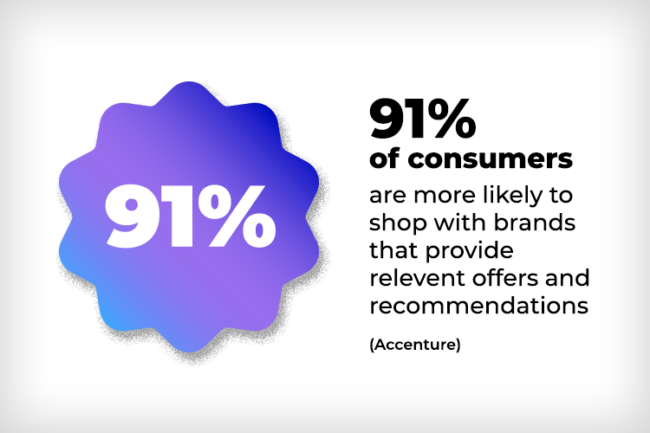Precision Targeting and Customer Retention
For online retailers, algorithms are the secret sauce that fuels precision targeting. By analysing consumer behavior, these algorithms can predict what products an individual is likely to buy, enabling retailers to target their marketing efforts more effectively. This not only optimises advertising budgets but also enhances the chances of converting leads into customers.
Moreover, algorithms contribute significantly to customer retention. By analysing past purchases and interactions, retailers can deploy strategies like personalised discounts or exclusive offers, creating a sense of loyalty among customers. This not only keeps customers coming back but also encourages them to spend more, contributing to the retailer’s bottom line.
Walking The Ethical Tightrope
Yet, the power wielded by algorithms in the retail space is a double-edged sword. The collection and utilisation of vast amounts of consumer data raise ethical concerns regarding privacy and consent. Retailers must tread carefully to avoid crossing the fine line between personalisation and intrusion. Instances of data breaches and misuse have heightened consumer awareness about the potential risks, and any misstep by retailers in this realm can lead to a loss of trust.
Another challenge is the potential for discrimination. Algorithms, if not carefully designed and monitored, can inadvertently perpetuate biases present in historical data. This can result in discriminatory outcomes, where certain groups of consumers are unfairly treated or excluded. The need for ethical considerations in algorithmic decision-making is paramount to ensure a fair and inclusive online marketplace.
The Future for Online Retailers
As technology continues to advance, the future holds promising developments for online retailers seeking to further optimize the algorithmic landscape.
AI-driven Virtual Assistants:
Integrating artificial intelligence (AI) into virtual assistants could revolutionize customer service. These virtual assistants, powered by advanced algorithms, could provide real-time, personalized assistance to shoppers, answering queries, and guiding them through the purchasing process.
Augmented Reality (AR) Shopping Experiences:
AR has the potential to transform how consumers interact with products online. Online retailers could develop AR applications that allow customers to virtually try on clothes, visualize furniture in their homes, or test out cosmetic products before making a purchase. This immersive experience could significantly reduce the uncertainty associated with online shopping.
Blockchain for Enhanced Security:
Concerns about data privacy and security could drive the adoption of blockchain technology. By decentralizing data storage and ensuring transparent and secure transactions, blockchain can address some of the trust issues consumers have regarding the use of their personal information.
Dynamic Pricing Algorithms:
The evolution of pricing algorithms could lead to more dynamic and personalized pricing strategies. Retailers might employ algorithms that adjust prices in real-time based on factors such as demand, inventory levels, and individual customer behavior. While this could provide consumers with more tailored pricing, it also raises concerns about fairness and transparency.



